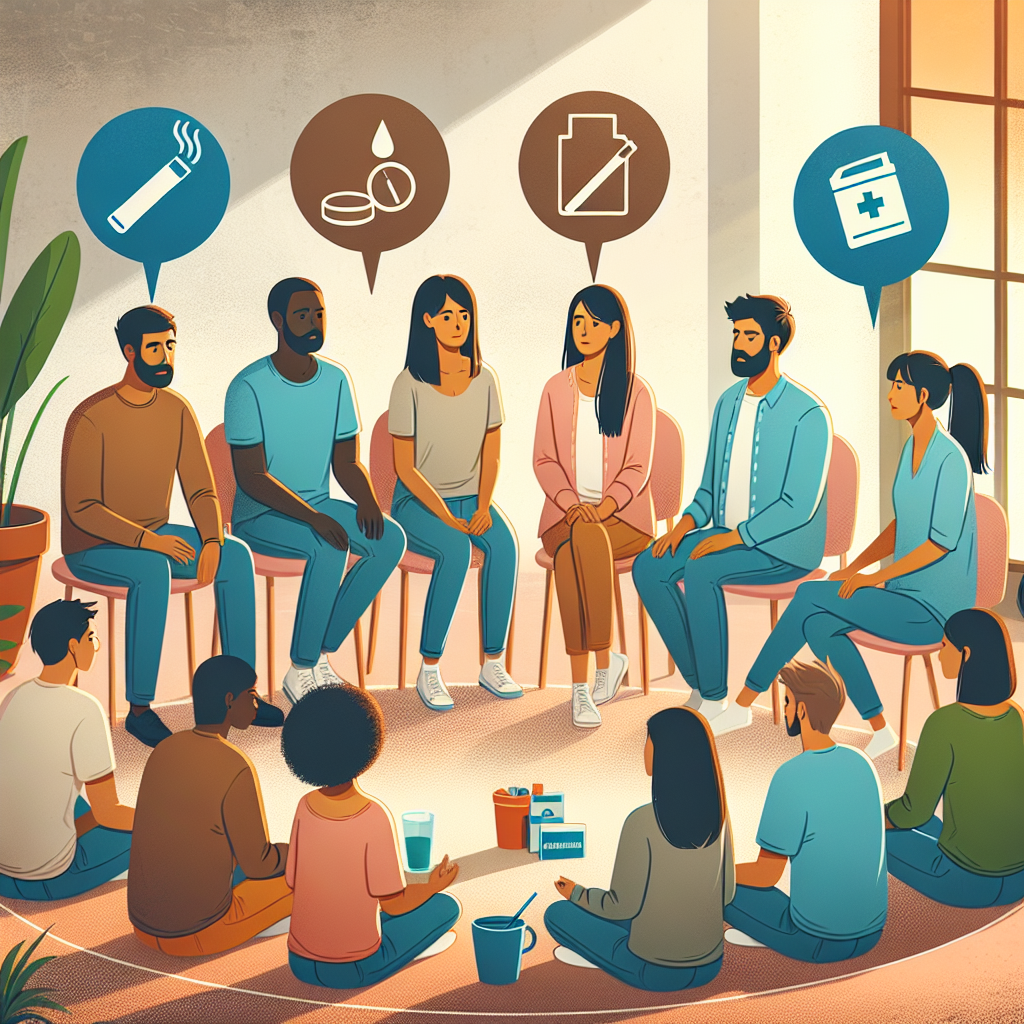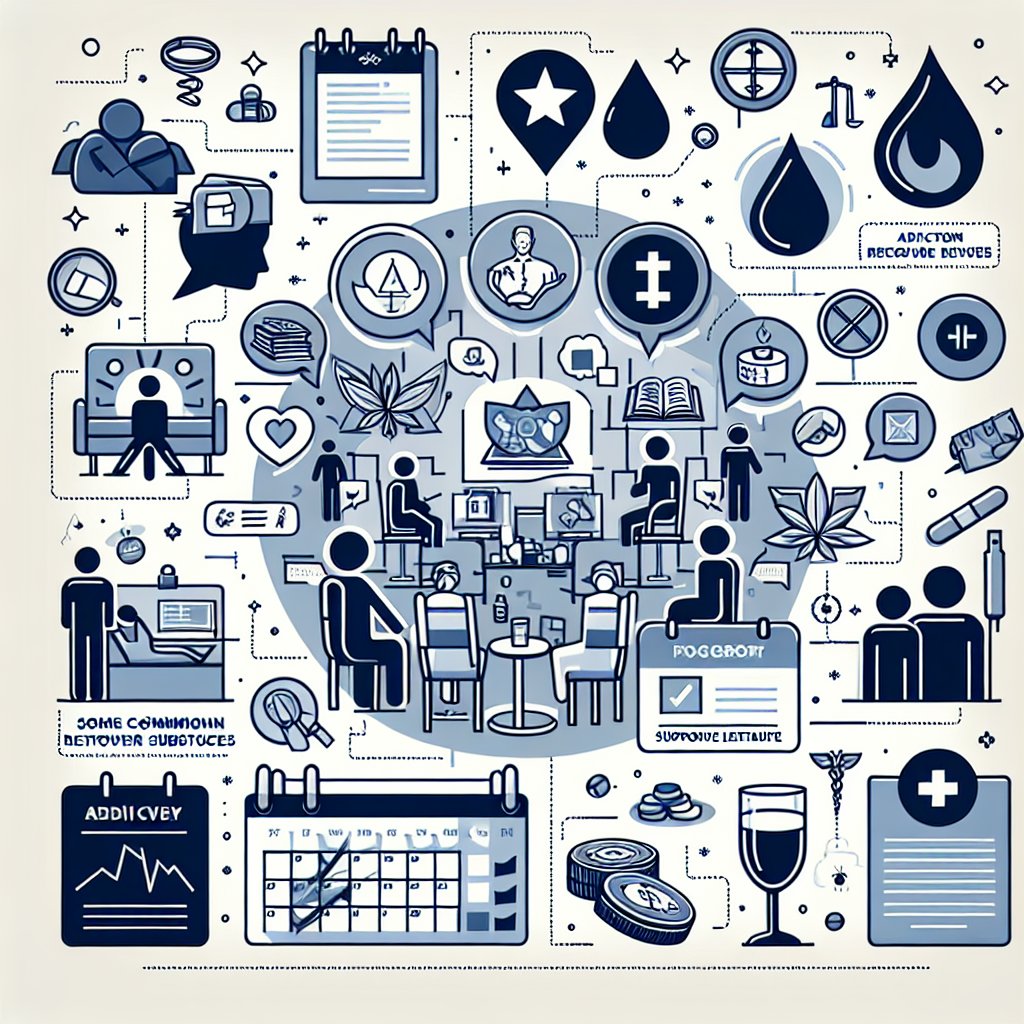-
Table of Contents

“Targeted Recovery: Specialized Services for Every Substance Addiction”
Introduction
Addiction recovery services are specialized programs designed to help individuals overcome dependency on specific substances. These services cater to a wide range of addictions, including alcohol, opioids, stimulants, and prescription medications. Each type of substance abuse presents unique challenges and requires tailored treatment approaches. Recovery services often include a combination of medical detoxification, counseling, behavioral therapy, and support groups. By focusing on the particular substance of abuse, these programs aim to address the specific physical, psychological, and social aspects of addiction, thereby enhancing the chances of successful recovery and long-term sobriety.
Exploring Addiction Recovery Services for Opioid Dependence
Addiction recovery services have evolved significantly over the years, with a growing recognition of the need for specialized programs tailored to specific substances. Among these, opioid dependence has garnered particular attention due to its devastating impact on individuals and communities. The opioid crisis, fueled by the misuse of prescription painkillers, heroin, and synthetic opioids like fentanyl, has led to an urgent demand for effective recovery services. Understanding the unique challenges associated with opioid addiction is crucial in developing and implementing successful recovery strategies.
One of the primary reasons opioid addiction requires specialized recovery services is the profound physical dependence it creates. Opioids interact with the brain’s reward system, producing intense euphoria and pain relief, but also leading to significant tolerance and withdrawal symptoms. These withdrawal symptoms can be severe, including nausea, vomiting, muscle pain, and intense cravings, making it extremely difficult for individuals to quit without professional help. Therefore, opioid-specific recovery programs often incorporate medically supervised detoxification to manage withdrawal symptoms safely and effectively.
Medication-assisted treatment (MAT) is a cornerstone of opioid addiction recovery services. MAT combines FDA-approved medications, such as methadone, buprenorphine, and naltrexone, with counseling and behavioral therapies. These medications help to stabilize brain chemistry, block the euphoric effects of opioids, and alleviate physiological cravings, thereby reducing the risk of relapse. By addressing both the physical and psychological aspects of addiction, MAT has been shown to improve treatment retention and long-term recovery outcomes.
In addition to MAT, opioid-specific recovery services emphasize comprehensive behavioral therapies. Cognitive-behavioral therapy (CBT), for instance, helps individuals identify and change negative thought patterns and behaviors related to their addiction. Contingency management, another effective approach, uses positive reinforcement to encourage sobriety and adherence to treatment plans. These therapies are often delivered in individual or group settings, providing a supportive environment where individuals can share experiences and learn from one another.
Peer support is another vital component of opioid addiction recovery. Programs like Narcotics Anonymous (NA) offer a community of individuals who have faced similar struggles, providing mutual support and accountability. Peer support groups can be particularly inspiring, as they demonstrate that recovery is possible and offer practical advice for overcoming challenges. Many recovery services also incorporate family therapy, recognizing that addiction affects not just the individual but their loved ones as well. Strengthening family relationships and improving communication can create a more supportive home environment conducive to recovery.
Furthermore, addressing the social determinants of health is essential in opioid addiction recovery. Many individuals struggling with opioid dependence face additional challenges such as unemployment, homelessness, and legal issues. Comprehensive recovery services often include vocational training, housing assistance, and legal support to help individuals rebuild their lives. By addressing these broader issues, recovery programs can reduce the risk of relapse and promote long-term stability.
In conclusion, addiction recovery services for opioid dependence are multifaceted and tailored to address the unique challenges of this condition. Through a combination of medication-assisted treatment, behavioral therapies, peer support, and addressing social determinants of health, these specialized programs offer a holistic approach to recovery. The journey to overcoming opioid addiction is undoubtedly challenging, but with the right support and resources, individuals can achieve lasting recovery and reclaim their lives. The inspirational stories of those who have successfully navigated this path serve as a testament to the effectiveness of these dedicated recovery services.
Specialized Treatment Programs for Alcohol Addiction Recovery
When it comes to addiction recovery, one size does not fit all. This is particularly true for alcohol addiction, which often requires specialized treatment programs tailored to the unique challenges and needs of those struggling with this specific substance. Alcohol addiction, or alcoholism, is a pervasive issue that affects millions of people worldwide, and its treatment necessitates a comprehensive approach that addresses both the physical and psychological aspects of the disorder.
Specialized treatment programs for alcohol addiction recovery are designed to provide a structured and supportive environment where individuals can focus on their journey to sobriety. These programs often begin with a thorough assessment to determine the severity of the addiction and any co-occurring mental health conditions. This initial evaluation is crucial as it helps to create a personalized treatment plan that caters to the individual’s specific needs.
Detoxification is often the first step in alcohol addiction recovery. This process involves the supervised withdrawal from alcohol, which can be a challenging and sometimes dangerous phase due to the potential for severe withdrawal symptoms. Specialized treatment programs offer medical supervision and support during detox to ensure the safety and comfort of the individual. This medical oversight can be a critical component in preventing complications and providing the necessary care during this vulnerable time.
Following detoxification, individuals typically engage in a variety of therapeutic interventions designed to address the underlying causes of their addiction. Cognitive-behavioral therapy (CBT) is a common approach used in specialized alcohol addiction treatment programs. CBT helps individuals identify and change negative thought patterns and behaviors that contribute to their addiction. By developing healthier coping mechanisms, individuals can better manage stress and avoid relapse.
In addition to individual therapy, group therapy sessions are often a key component of specialized treatment programs. These sessions provide a supportive community where individuals can share their experiences, gain insights from others, and build a network of support. The sense of camaraderie and understanding found in group therapy can be incredibly empowering and motivating for those in recovery.
Family involvement is another critical aspect of specialized alcohol addiction treatment. Addiction often affects not just the individual but also their loved ones. Family therapy sessions can help repair relationships, improve communication, and provide education about the nature of addiction. By involving family members in the recovery process, individuals can build a stronger support system that extends beyond the treatment program.
Holistic therapies are also frequently incorporated into specialized treatment programs for alcohol addiction. These may include mindfulness meditation, yoga, art therapy, and other activities that promote overall well-being. Holistic approaches aim to treat the whole person, addressing not just the addiction but also the emotional, physical, and spiritual aspects of recovery. By fostering a sense of balance and inner peace, these therapies can enhance the effectiveness of traditional treatment methods.
After completing a specialized treatment program, ongoing support is essential for maintaining sobriety. Many programs offer aftercare services such as continued therapy, support groups, and sober living arrangements. These resources provide a safety net as individuals transition back into their daily lives, helping them navigate challenges and stay committed to their recovery goals.
In conclusion, specialized treatment programs for alcohol addiction recovery offer a comprehensive and tailored approach to overcoming this challenging disorder. By addressing the unique needs of individuals struggling with alcohol addiction, these programs provide the tools, support, and guidance necessary for a successful journey to sobriety. With the right treatment and a strong support system, recovery is not just possible—it is achievable, and it can lead to a healthier, more fulfilling life.
Q&A
1. Are there addiction recovery services specifically for alcohol addiction?
– Yes, there are addiction recovery services specifically for alcohol addiction, such as Alcoholics Anonymous (AA) and specialized rehab centers focusing on alcohol dependency.
2. Are there addiction recovery services specifically for opioid addiction?
– Yes, there are addiction recovery services specifically for opioid addiction, including Medication-Assisted Treatment (MAT) programs that use medications like methadone or buprenorphine, as well as specialized counseling and support groups.
Conclusion
Yes, there are addiction recovery services tailored to specific substances. These services often include specialized treatment programs, counseling, and support groups designed to address the unique challenges associated with different types of substance abuse, such as alcohol, opioids, cocaine, and others. Tailoring recovery services to specific substances can improve the effectiveness of treatment by addressing the particular physical, psychological, and social aspects of each type of addiction.



